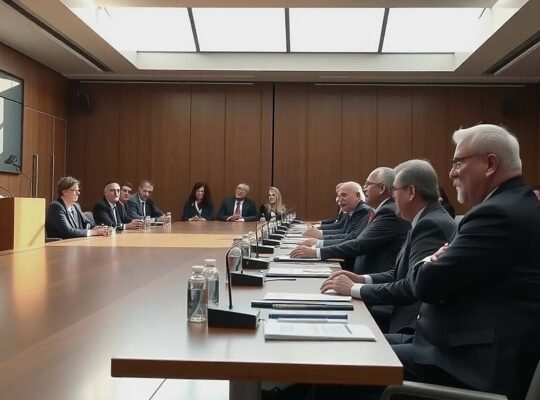Sector Performance Raises Concerns Amidst Shifting Economic Landscape
Preliminary data released Tuesday by the Federal Statistical Office (Destatis) paints a concerning picture of Germany’s hospitality sector, revealing a contraction in sales during August 2025. The decline, while seemingly modest, underscores broader economic anxieties and raises questions about the government’s effectiveness in supporting vital industries.
Real turnover in the hospitality sector fell by 1.4% and nominal turnover by 1.2% in August 2025 compared to July, marking a significant slowdown after earlier revised-down growth figures for July. The initial, more optimistic data indicated a 0.8% real increase in July, subsequently revised to a mere 0.3%. This downward revision reveals a potential fragility within the sector that may require deeper investigation.
The situation appears more dire when considering year-on-year comparisons. Real turnover plummeted by 3.5% and nominal turnover by 0.6% when compared to August 2024. This substantial decline signals a sustained period of underperformance, suggesting that previously implemented support measures, likely introduced in response to pandemic-era disruption, may be failing to maintain momentum.
Hotels and accommodation services bore the brunt of this downturn. August 2025 witnessed a real turnover decrease of 1.8% and a nominal decrease of 1.2% against July, while the year-on-year comparison revealed a steeper decline of 3.7% in real turnover and 1.5% in nominal turnover. The reduced demand within the accommodation sector, particularly impacting hotels, could reflect shifts in travel patterns or a decline in disposable income amongst potential visitors, potentially exacerbated by rising inflation and energy costs.
The restaurant and catering segment also experienced a contraction, albeit a less dramatic one. August witnessed a real turnover drop of 0.6% and a nominal drop of 0.2% compared to July. Even against the backdrop of August 2024, a real turnover decline of 3.7% highlights the ongoing challenges facing this critical employer.
Critics are already questioning the government’s approach to supporting the hospitality sector. While initial interventions may have been crucial in preventing collapse, the persistent downturn suggests a lack of long-term strategy or a failure to adapt policies to evolving economic realities. The discrepancy between initial optimism regarding July’s performance and the subsequent, revised figures further fuels concerns about the accuracy of economic forecasting and the transparency of data collection.
Analysts are urging policymakers to conduct a comprehensive review of existing support programs and to consider targeted interventions to address the specific challenges facing different segments of the hospitality sector. Failure to act decisively risks further erosion of a vital sector contributing significantly to Germany’s economy and employment landscape.












